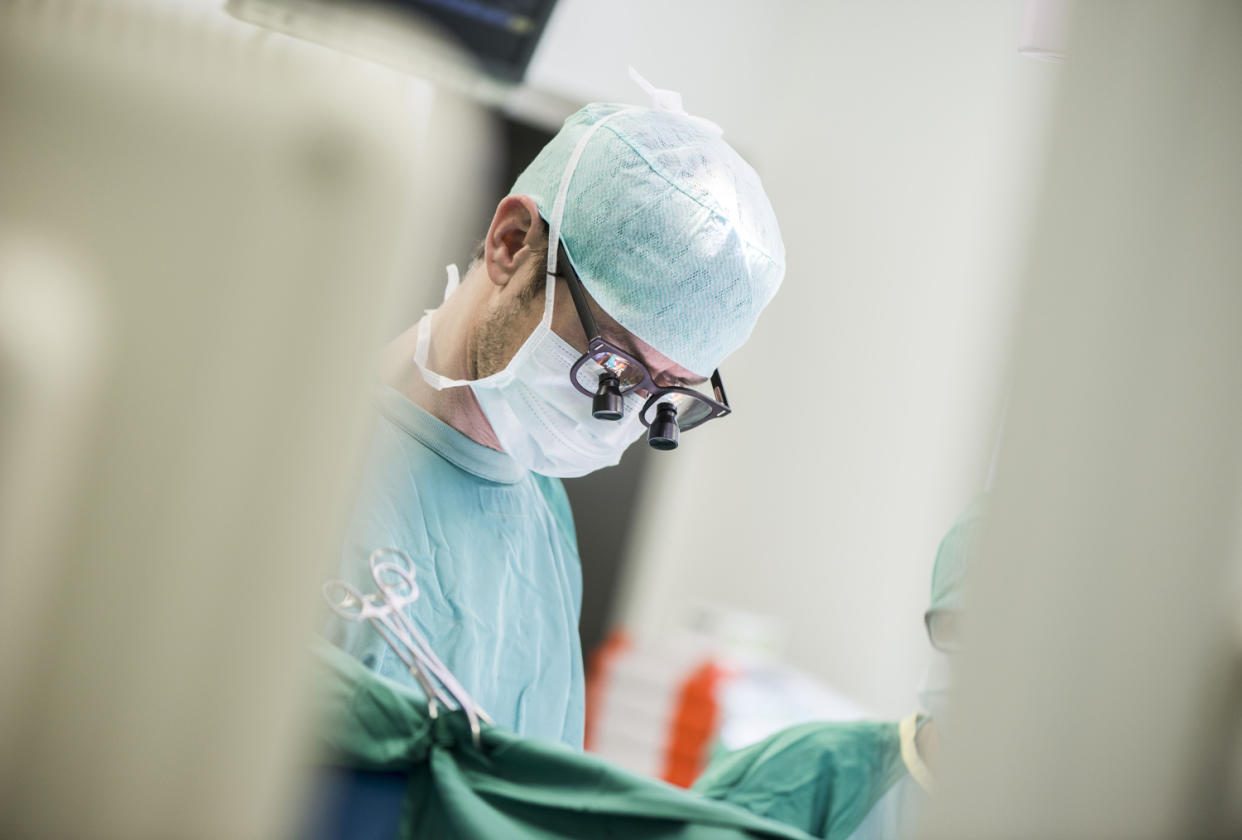Operating theatres 'wasting two hours a day' on avoidable factors like late starts

NHS operating theatres could carry out an extra 280,000 non-emergency procedures a year simply through better scheduling, a new study has said.
NHS Improvement said that planning lists more effectively and reducing late starts and early finishes could save two hours a day.
The regulator, which commissioned the report based on data from 2016, said that it is not a question of getting surgeons to work harder.
The analysis, which has been published by the BBC ahead of publication, studied theatres in 100 NHS Trusts in England.
It found that a total of 1.64 million routine surgical procedures were carried out in 2016. These non-emergency surgeries include eye, ear, nose and throat operations.
MOST POPULAR STORIES ON YAHOO UK
Fireman who had world’s most extensive face transplant reveals why he ‘didn’t fear death’
Tired driver had ‘mini-sleep’ before four-carriage train crashed into buffers at Kings Cross
Millionaire surgeon to rebuild six-bedroom mansion which collapsed as he tried to install super-basement
These are the eight different prototypes aiming to be Donald Trump’s Mexico border wall
Briton jailed for ‘touching man’s hip’ in Dubai bar is freed and has passport returned
Earlier in the year, the NHS confirmed it was abandoning a ten year-old waiting time targets as part of a “trade-off” to improve care in other areas, such as A&E.
The 18-week waiting time target of 92 per cent for non-urgent surgery — including hip replacements and knee operations — was cancelled after a decade.
At the time, the Royal College of Surgeons of England (RCSE) accused the NHS of “waving the white flag on the 18-week target”.
Clare Marx, the RCSE president, said: “We risk returning to the days of unacceptably long waits for elective surgical treatment.”
But NHS Improvement found that working hard to cut last-minute cancellations through better pre-operation planning allowed one hospital to significantly improve its performance.
NHS Improvement’s Steve Russell says: “We hope this analysis will enable them to identify bottlenecks within their systems to ensure operations are scheduled more appropriately and more patients receive the care they need quickly.”
Richard Kerr, of the Royal College of Surgeons, says: “I think the NHS can always be more efficient and I think people have worked very hard to try to make it more efficient, but I don’t think those savings are going to resolve the ever-increasing demand that is being put on the health service.”
The British Medical Association has claimed the NHS’s inability to meet all its waiting time targets shows that it is “at breaking point”.
Dr Mark Porter, its chairman, said: “Achieving one delivery promise only by missing another is a textbook example of rationing access to care. It should not be happening in today’s NHS.”
When the waiting times target was dropped, the shadow health secretary, Jon Ashworth, wrote to Jeremy Hunt claiming the government and NHS England were acting unlawfully.

 Yahoo News
Yahoo News 

